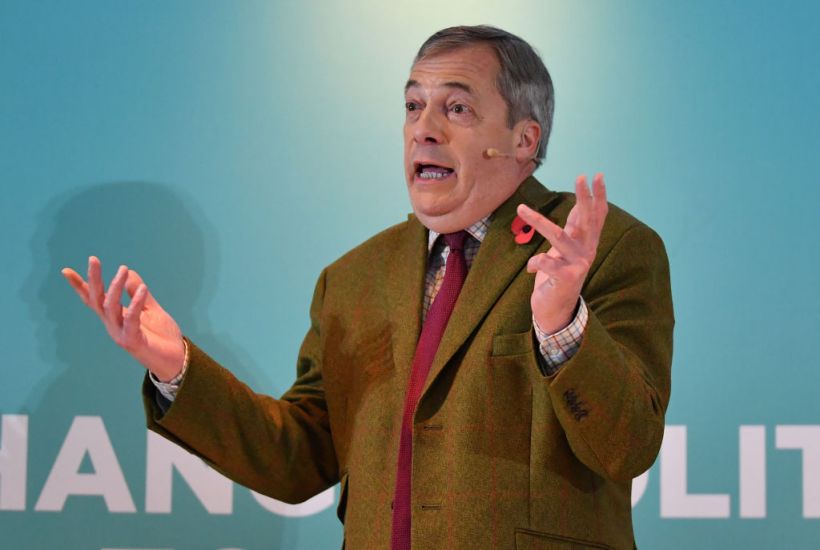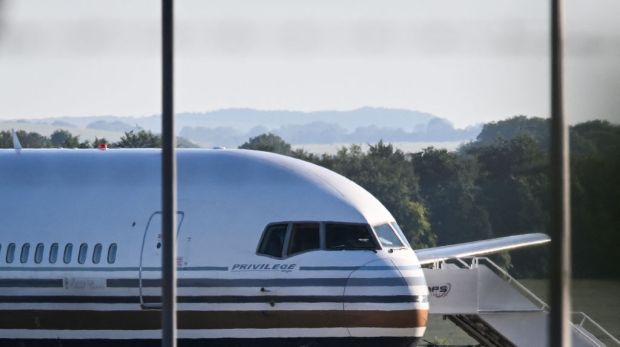Nigel Farage says his party will stand aside in all 317 seats the Tories won in 2017. This drastic u-turn in the Brexit party election strategy had been expected. But it still strikes me as a poorly thought through plan, given that it means the Brexit party will give a free pass to Brexit rebels like Greg Clark (in Tunbridge Wells) and also make life difficult for Tories in top Labour-held target seats.
Farage can point to an explicit, on-camera promise from Boris Johnson about not extending the post-EU departure transitional phase beyond the end of next year as yet another shift he has forced in the Tory position. And he can use that as a rationale for abandoning his unconvincing threat to stand everywhere.
But I can’t help but feel he has missed a trick and is still over-extending his party’s resources without having sufficiently thought through a targeted strategy. There is still time for him to hone the message and the campaign further though. So here is what I would do in his shoes.
After allowing the media 48 hours or so to digest his latest coup de theatre, he should perform another by announcing that, in this election and beyond, the Brexit party will become the “cocoa” party – the party of coalfield and coastal communities. To this end it should stand down another 200 candidates, leaving approximately 100 to stand only in former mining communities and fishing towns.
Such a move would get the Brexit party out of the hair of the Tories in the vast majority of their target seats in regions like the West Midlands and North West. It would also allow it to concentrate its resources on its own top targets such as Hartlepool (coastal) and the Barnsley seats (coalfield).
In a few places, such as Grimsby and Bolsover, battle would still be joined with the Tories in a target seat. But one can hardly expect Farage to turn his party into a wholly-owned subsidiary of the Conservatives by taking its marching orders direct from CCHQ.
More importantly still for the Brexit party, such a strategy would allow it to start concentrating its vote and appeal in a manner crucial to smaller parties hoping to win seats under First Past The Post.
Mining and fishing are two industries which, above almost any others, dominated the communal lives and identities of their localities. And in both cases, the Conservative party is seen to have let them down; under Edward Heath in the case of fishing and Margaret Thatcher in the case of coal mining.
Here then we have two groups of constituencies, which tend to have older, socially-conservative electorates, who have have little in common with the values of the modern Labour party and yet also harbour a profound, long-term grudge against the Tories.
So Nigel Farage should pop up again on Wednesday and say something like this:
“We in the Brexit party have shifted the Tories a long way. We have forced them to ditch Theresa May. And now we have forced Boris Johnson to promise in terms that he will not seek to extend the transition phase of Brexit beyond the end of next year. So, for the sake of the country, we will not get in the way of prospects for a Tory majority and a deserved routing of Labour and the Lib Dems that will lead to formal Brexit in January.
“But we still don’t trust Boris Johnson not to sell-out our coastal communities as Edward Heath did when he turned UK waters into a ‘common European resource’. And we do not trust either the Tories or Labour, with their fashionable metropolitan obsessions, to bring jobs, investment and opportunities back to our old pit villages and mining towns either. So we are going to be the champion of these communities and we are going to be that for the long-term.”
That would, I suggest, lead to massive emotional “buy-in” in the places where the Brexit party did stand. It would also make the party a potent force in mid-term by-elections in every coastal town and former mining community. And it would give Farage a cutting edge when it comes to harrying a Tory government as it negotiates our future relationship with the EU.
The 600 strategy has become a 300 strategy. In fact, a 100 strategy would be a better way to go. It would crucially give the Brexit party’s election effort every chance of propelling it forward so it becomes part of the long-term political make-up of the country.
Got something to add? Join the discussion and comment below.
Get 10 issues for just $10
Subscribe to The Spectator Australia today for the next 10 magazine issues, plus full online access, for just $10.




















Comments
Don't miss out
Join the conversation with other Spectator Australia readers. Subscribe to leave a comment.
SUBSCRIBEAlready a subscriber? Log in